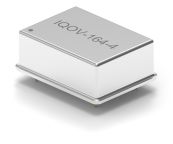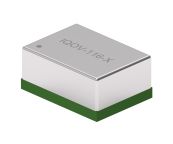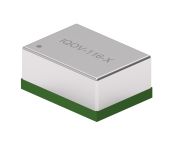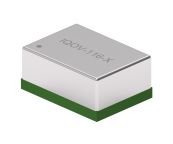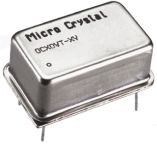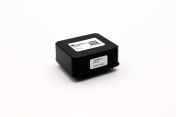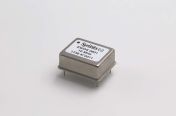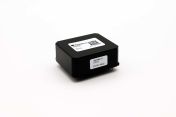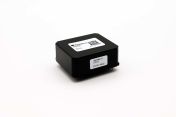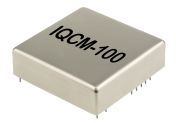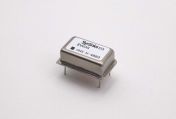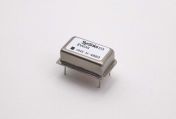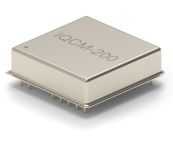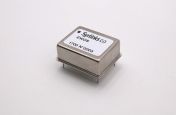OCXO Oscillators
OCXO stands for Oven Controlled Crystal Oscillator. These oscillators offer higher stability than standard Clock Oscillators or TCXO's over temperature variations. They can also offer better overall accuracy over the short term (typically 1x10-12 over a few seconds) and longer-term (typically 1x10-8 (10 ppb) per year).
OCXO's are precision oscillators that can provide a stable oscillation over variations in ambient temperature. OCXO temperature stability can range from the most basic at 500ppb to sophisticated double ovens at 0.02ppb, with most falling between 50ppb and 3ppb.
They work through the tight control of their internal oven that keeps the chamber and the crystal at a set temperature, so holding the frequency stable. The temperature selected for the oven is one at which the slope of the crystal's frequency vs. temperature curve is near zero. This is called the turn point of the crystal and is normally 75'C to 80'C for commercial OCXO's. For industrial-grade OCXO's where the maximum temperature can vary up to 85'C, the turn point will be higher still. The important design consideration is that the turn point/oven temperature must be higher than the operating temperature, so frequency control is maintained.
Output logic options for these oscillators consist of HCMOS, Clipped Sine-wave, and Sine-wave configurations
Type of Crystal used
OCXO's generally use AT-cut or SC-cut (Stress-Compensated) crystals in their design, with the SC-cut being used for higher performance. The SC-cut crystal offer flatter frequency vs. temperature curve reduces warmup time and has other good attributes, like better ageing, higher Q resulting in better phase noise, less G-sensitivity, and less sensitive to vibration.
Where are OCXO's used?
- Broadcasting
- Satellite Systems
- Telecommunications
- Data communications
- Test and measurement
14 Producten voor OCXO Oscillators
Populaire zoekopdrachten
Gerelateerde Links
- IQD 10MHz OCXO Oscillator, 36x27mm DIP ±1ppb SinewaveLFOCXO063815Bulk
- SYRLINKS 10MHz OCXO Oscillator, Europack High ±10ppb SineEWOS831-5V0-B-S4
- TCXO Oscillators
- Crystal Oscillators
- VCO Oscillators
- SYRLINKS OCXO Oscillators
- Abracon, 27MHz Crystal Oscillator Crystal Oscillator CMOS SMD ASE-27.000MHZ-LC-T
- Abracon, 32.768kHz Crystal Oscillator Crystal Oscillator LVCMOS SMD ASAK-32.768KHZ-LRS-T
